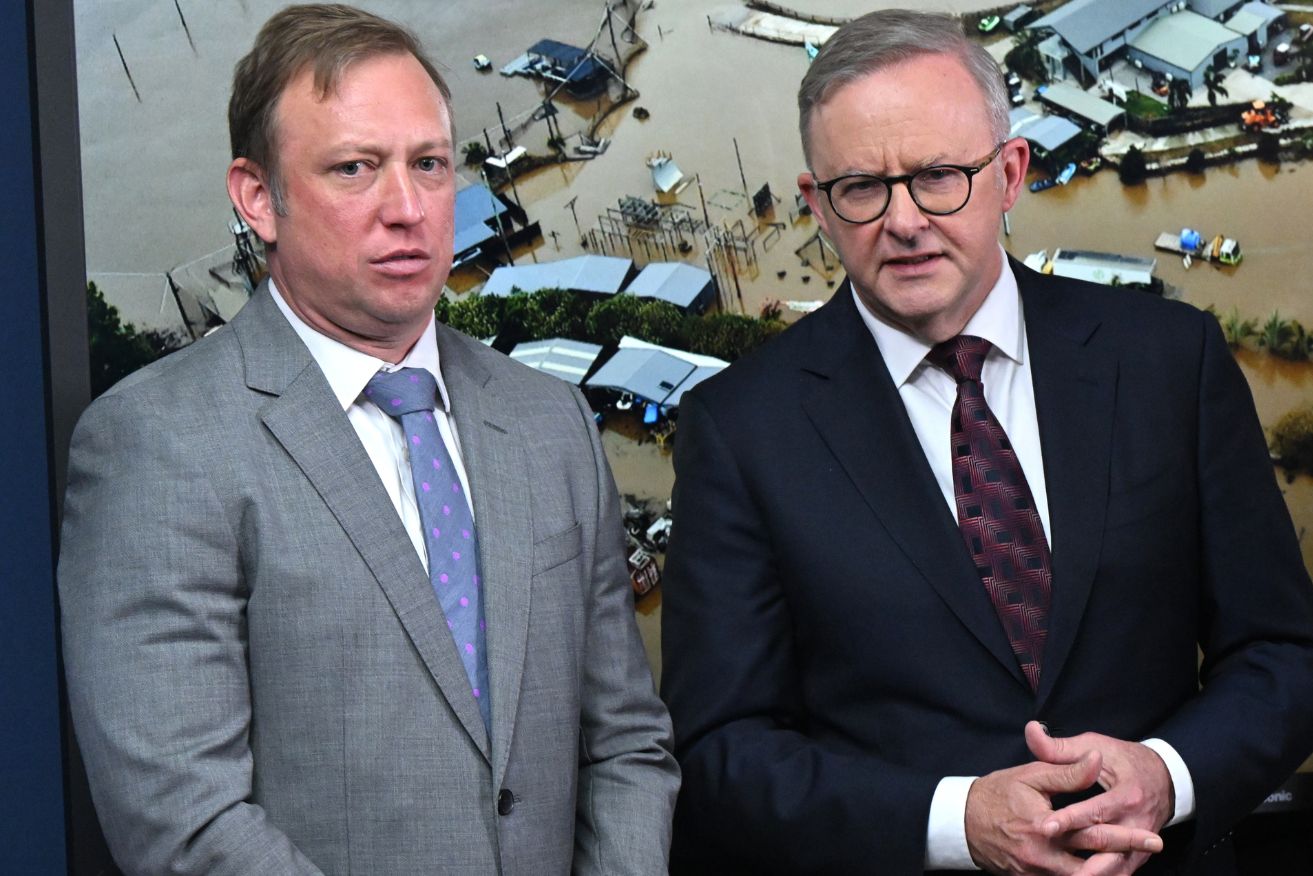Beware angry voters – always peeved, but never quite sure about what


Politicians, like Steven Miles and Anthony Albanese, should listen carefully, writes David Fagan. Photo: AAP
The little obstacles of life are the irritants to remind testy voters of the many ways government at all levels just doesn’t work for them.
A drive back from the Brisbane Valley at the weekend was such a reminder for this testy voter, contemplating just 200 days and a week or so until a state election at which voters appear to be waiting with baseball bats.
Roadworks are flavour of the month on the main highway between Fernvale and the main road at Ipswich. Or, at least, signs proclaiming roadworks are flavour of the month. Not much sign, however, of the works or the workers doing them.
On my count, the speed limit dropped from 100km/h to 60km/h at least five times, mainly for no obvious reason – there was no obstruction to the road, no workers at risk from speeding motorists. Just signs erected and then left untended with no purpose other than to needlessly slow the trip home.
There’s a pattern to this across south-east Queensland.
Our busiest highway, the M1 between Brisbane and the Gold Coast, always has lengthy zones slowed to 80km/h because of roadworks but, again, little evidence of the work or the workers doing it.
Most motorists now treat the 80km/h limit as a suggestion to be discarded (without fear of being caught and fined for speeding) just as they treat the regular limits on our own Cannonball Run as mere suggestions. Such is the respect for government rules.
These are the irritations that cost governments votes and are the sorts of irritations Steven Miles (and Anthony Albanese, who is only months behind him in facing the electorate) need to find and eliminate.
Why not adjust speed limits according to current needs, for instance, rather than leave the warnings to slow in place unnecessarily for months? And please, can someone fix potholes more quickly?
Look around and there are many more such irritants.
Most of us in inner-Brisbane now feel obliged to budget and pay for extra security because the police can’t keep on top of a crime wave.
We’re lucky if this stops at being a mere irritation and not, as many have experienced, a real incursion on our lives with no equivalent repercussions on the offenders.
Anyone wanting access to the mental health system knows they have to plan months in advance (unless they are in a crisis) to get access to specialist medical help. If they are in the publicly funded system, they will be lucky to see the same specialist twice.
We may be alert to the need to change our energy consumption (both for the good of the planet and our own bank accounts), but the guidance on how best to do it is confusing, at best, and misleading at worst.
Are lithium batteries safe? What is the range of electric vehicles? And is more solar and wind going to be further subsidised to reach our national targets (in which case, why not wait for the handout)?
And in the middle of this arises a threat to one certainty of life – the value of cash.
Ironically, it’s one of Australia’s richest men, Lindsay Fox, who is calling time on it.
His businesses now monopolise the shipment of cash through armoured cars around the country – but it’s no longer profitable.
The banks are rightly concerned at the impact of not being able to hand cash to customers who want it and are teaming with the big retailers (what could possibly go wrong?) to at least delay the day when cash ceases to exist.
And it appears that government has been wrong footed on this. Isn’t it their job to ensure our currency works as intended?
All this is grist for the mill for oppositions ready and willing to turn any irritation into a source of pain.
This is politics, as it has always been, but played out for an electorate primed easily to anger.
So while we pay attention to the big things – national security, equity in the tax and welfare systems, overall health of the economy and the functioning of the health and education systems – it’s the small things that will shape the next year or so.
There’s a small hint in the Brisbane City Council elections where the Greens did very well to take 20 per cent of the vote.
However individual and low-profile Green candidates across the city all outpolled their high-profile mayoral candidate. They focused (as they should) on local issues; he focused (as he should) on citywide issues and the locals all did better.
All politics, as they say, is local. And the next 200 days will be a regular reminder of that.








